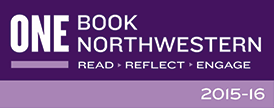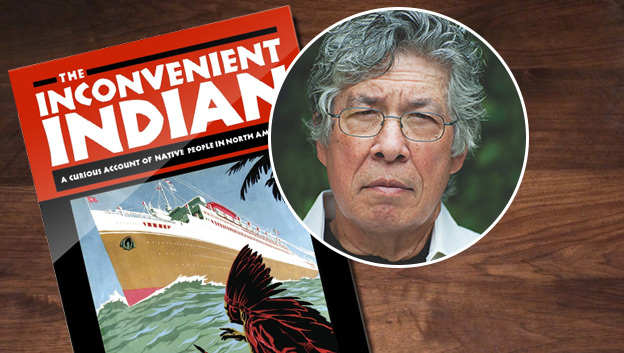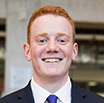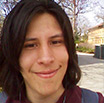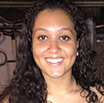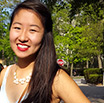Thomas King’s The Inconvenient Indian offers a penetrating, provocative look at the history of North American Indian-white relations in North America. It focuses on government efforts to remove and relocate Native peoples and white efforts to exterminate and assimilate them. It contrasts popular perceptions of what King calls “Dead Indians,” the romantic reminders of a largely fictional past (“dignified, noble, silent, suitably garbed”), and “Live Indians,” contemporary and contemptible (“invisible, unruly, disappointing”). And, to explain the complexities of Native resistance and reinvention, it offers a concluding chapter titled “What Indians Want.”
Read. Reflect. Engage.
A Note from Loren Ghiglione, One Book One Northwestern Faculty Chair
May 23, 2016
As the 2015-16 One Book One Northwestern programming ends, I want to thank all of the Northwestern faculty, students and staff and members of the Chicago-area Native community who are responsible for One Book’s success this year. I especially appreciate the leadership of Nancy Cunniff, senior program coordinator, the students who served as One Book fellows and ambassadors, and the steering committee. The fact that One Book sponsored 76 events this year—the most in One Book history—is a tribute to their hard work.
Another tribute takes the form of the decision by the Office of the President to build on the momentum of the 2015-16 One Book programming. The Office of the President is generously funding programming and projects focused on Native issues in 2016-17. Much remains to be done. And the 2016-17 Native American and Indigenous Peoples Steering Group has already begun its work. Ninah Devine, a 2016 graduate of Northwestern who has had a leadership role in the Native American and Indigenous Student Alliance, has been hired as the Steering Group’s coordinator. The Steering Group has begun plotting its strategy for next year, holding a May 10 planning luncheon.
That luncheon reminded me of how the 2015-16 year started, with the appearance of Thomas King. His The Inconvenient Indian: A Curious Account of Native People in North America begins with a chapter titled “Forget Columbus” and recalls that Columbus came ashore somewhere in the Caribbean, not in what is now the United States. But Columbus “was given credit for discovering all of the Americas,” King writes. Of course, King believes the whole notion of discovery is a myth that fails to give credit to the indigenous people who were residents of North America thousands of years before Columbia arrived in the Caribbean.
I mention King’s “Forget Columbus” chapter because the city of Evanston is teaming with the Mitchell Museum of the American Indian on Central Street to replace Columbus Day with Indigenous Peoples’ Day locally beginning October 10.
Evanston was once home to tribes including the Ho-Chunk, Miami, Ojibwe, Ottawa and Potawatomi, and continues to be home to indigenous peoples. More than an estimated 40,000 Native Americans currently live in the Chicago metropolitan area; they represent 150 tribes. Mitchell Museum officials said in their announcement: “By adopting Indigenous Peoples’ Day, Evanston embraces its history and the multicultural community it has become today.”
Indigenous Peoples’ Day started in Berkeley, California, in 1992, and other cities also have adopted the name, from Minneapolis and St. Paul, to Lawrence, Kansas, to Portland, Oregon, and Seattle, Washington. Universities in both the East (Brown, Cornell, Tufts) and West (Oklahoma, Utah) have also adopted Indigenous Peoples’ Day.
I polled the Steering Group last week on whether they supported an Indigenous Peoples’ Day in Evanston. The 31 members of the Steering Group who responded voted unanimously to approve the effort by Evanston and the Mitchell Museum to celebrate Indigenous Peoples’ Day locally. One Steering Group member informed me that the Native American Support Program and the Native student organizations at the University of Illinois at Chicago will be celebrating Indigenous Peoples’ Day on the UIC campus.
On the basis of the Steering Group’s vote, I wrote to President Schapiro and Provost Linzer, asking that Northwestern University support the annual celebration of Indigenous Peoples’ Day in Evanston. May 2016-17 changes and achievements in Evanston and at Northwestern build on the success of the 2015-16 One Book program.
Best,
Loren Ghiglione
Meet Our Fellows
Become Involved
Administration
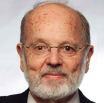
Loren Ghiglione
Medill Professor of Journalism, 2015-16 One Book One Northwestern Faculty Chair
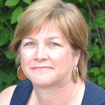
Nancy Cunniff
Senior Program Coordinator One Book, One Northwestern
